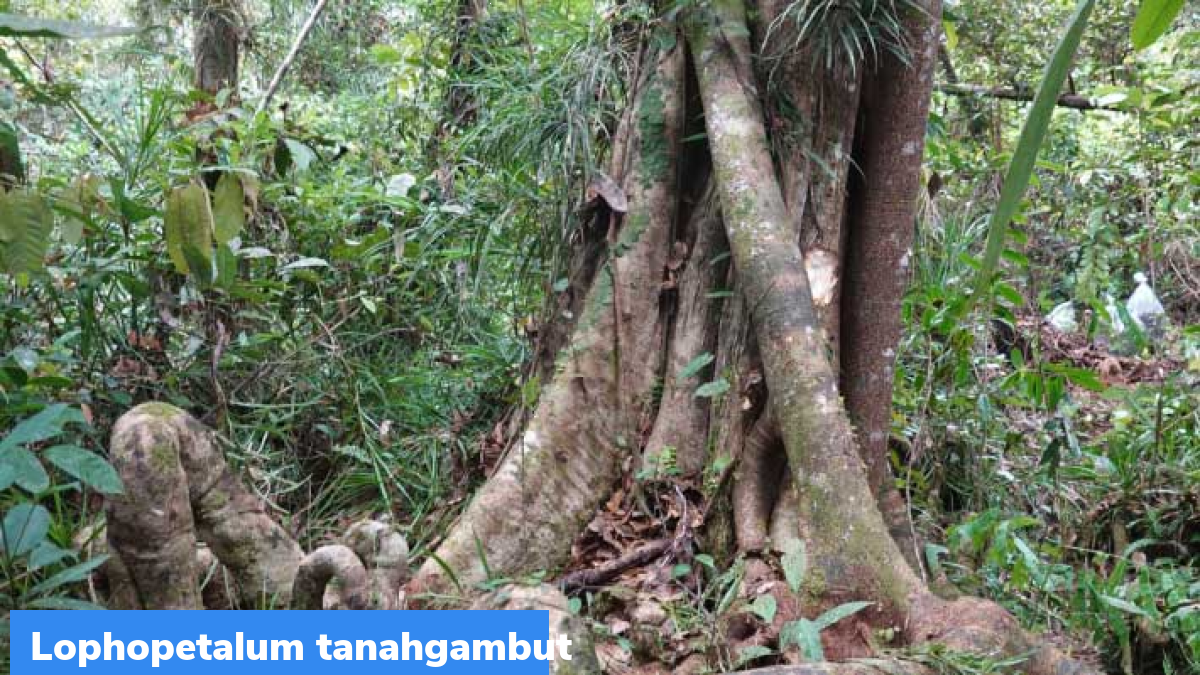Lophopetalum tanahgambut
A new species of giant tree named Lophopetalum tanahgambut was discovered in Indonesia.
About the new species
- The new species belongs to the genus Lophopetalum in cosmopolitan family Celastraceae.
- Lophopetalum genus has almost 20 recognized species native to India, Bangladesh, Indonesia, Cambodia, Laos, Malaysia, Myanmar, Nepal, New Guinea, Philippines, Thailand, Vietnam, Australia, and the Andaman Islands.
- Within the Celastraceae family, Lophopetaleae has 3 paleotropical genera that is known to have winged seeds that lack an aril. These are Kokoona, Lophopetalum and Peripterygia. The largest among them is Lophopetalum, having 19 species that are identified by their petals’ inner surface.
- The new species, Lophopetalum tanahgambut, is found only in peat swamp forests on the Sumatra Island of Indonesia. These forests are known for their unique, nutrient-poor, carbon-rich and wet conditions that require species to have unique adaptive capabilities to survive. Over the years, these forests have undergone widespread conversion to agriculture. Only 11 per cent of undisturbed peat swamp forests remain, while others have degraded or undergone agricultural conversion.
- The new species is found to grow up to 40 meters tall. It has a diameter-at-breast-height (dbh) of up to 1.05 meters.
- Its knee roots system is wide, reaching up to 15 meters around the tree and raising up to 1.5 meters high from the ground surface.
- The bark is smooth, cracked longitudinally, creating a flaky, light to dull grey or milky white color outer surface. The inner bark is pinkish-orange to pale-reddish brown or sapwood cream.
- The flowering occurs from February to April, and fruiting occurs in April-June.
- The new species does not have opposite or subopposite leaves, which usually occurs in species belonging to Lophopetalum.
- Scientists have recommended categorizing this species as Critically Endangered.
- The species is found in a relatively undisturbed lowland peat swamp forest, which is being preserved by the voluntary commitment of concession.
Month: Current Affairs – November, 2022
Category: Places in News Current Affairs • Science & Technology Current Affairs


